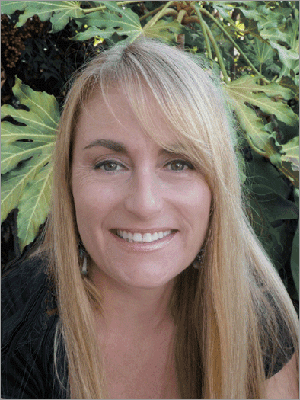Last year I read and reviewed We'll Always Have Paris by Jennifer Coburn. To celebrate the book's one-year anniversary, the author is back for a guest post about her Aunt Bernice and her diaries.
The Tossed Diaries
 There
is a great deal I will never know about my Aunt Bernice because soon
after her death, her son destroyed more than 75 years of her
hand-written diaries. He dumped them in the incinerator in Bernice’s
condo, where I had often tossed garbage bags filled with her empty
mayonnaise jars and Weight Watchers snack wrappers.
There
is a great deal I will never know about my Aunt Bernice because soon
after her death, her son destroyed more than 75 years of her
hand-written diaries. He dumped them in the incinerator in Bernice’s
condo, where I had often tossed garbage bags filled with her empty
mayonnaise jars and Weight Watchers snack wrappers.
What I do know about my aunt is this: she died shortly after her ritual midnight
snack, this time half a rib eye steak and mashed potatoes left over
from dinner at Smith and Wollensky. Her son told me that when he came to
pick her up for breakfast the next morning, Bernice had already passed
away. The leftovers from her last meal were missing from the fridge, a
single plate and silverware setting in the dishwasher.
Bernice
had been an unusual 90-year-old hospice patient, and her exit from life
served as a fitting metaphor for how she lived it: enjoying every last
bite. We spoke by phone earlier that day and in her thick New York
accent, she said her doctors were crazy. “End of life heart disease?”
she scoffed. “I feel marvelous.”
Bernice
and I often talked about how I would inherit her diaries when she died.
We shared a love of contemporary art, high-fat food, and writing. I
told her I wanted to write a book about her, which she said would be a
total bore except for the part about the pilot that invited her to take a
Jell-O bath. Or the time an ex-fiancé sued her for keeping his lavish
gifts after she dumped him. And there was the mix-up with that art
gallery owner that allowed her to acquire a Salvador Dalí sculpture at a
fraction of its value.
Bernice
told sepia-toned stories of her childhood in Brooklyn in the 1930s,
complete with details of her neighbors’ cloche hats and shabby furs. I
always imagined her with a fountain pen, scratching out stories about
her past: how her father lost his coat factory in a dice game with a guy
with a gangster name like Skinny Carmine or about how her parents
planned to stage their economic comeback by running card games from
their Coney Island apartment.
By
the time Bernice was a teenager, the nonstop topic of conversation at
home was about how her Jewish family would survive if Adolf Hitler
crossed the Atlantic Ocean and came to the United States. My
grandparents’ plan for Bernice was for her to be hidden in a convent.
She could pass as gentile, the nuns there said. The German family living
in the apartment downstairs would adopt my father, an infant at the
time. Bernice’s younger sister Rita had polio, so there was little hope
for her.
Bernice
wasn’t all nostalgic remembrances; she opined on contemporary issues
too. She thought Sheryl Sandberg – or Sandersberger as she called her –
was meshugenah with her “lean in nonsense.” Bernice said when she
was a young woman, she called in sick to work every Friday. “Today
Goldsmith Jewelers is out of business and I’m 90 years old with a
beautiful life,” she said. “So who do you think had the right idea?”
More
than the storyline of Bernice’s life, I was interested in how she had
remained incredibly centered and positive in the face of a fair amount
of prejudice and hardship throughout her long life.
Ten
years before she died, Bernice had a stroke. “A mini,” she called it.
On the phone from the county hospital, Bernice told me her room was
lovely and that a gorgeous bud vase sat on a table beside her bed. When
she mentioned this to the nurse, she found a red carnation in the vase
the next morning. “Aren’t people marvelous?” she mused.
When
I found out my aunt had died, I took some comfort knowing I would
revisit familiar stories, and gain deeper perspective on her life
through her diaries. Her son said he threw them away because not all of
her memories were happy ones. Of course that is exactly why her writings
would have been so precious to me. Like all of us, Bernice’s life was
filled with emotional complexity and conflicting desire. Yet she always
managed to experience the profound joy and goodness in the world.
Bernice’s
son may have felt ambivalence over my reading his mother’s private
thoughts, but I know Bernice would have shared them freely with me.
During our last visit together, my aunt asked me to read aloud to her
from one of her diaries. When I asked which volume I should select, she
replied, “Surprise me.” Bernice was not a person with dark secrets. She
was a wise old woman from whom I could have learned a lot.
I
wish I could have piled the diaries on my bedside table and leafed
through every page, hopeful that I might discover Bernice’s greatest
secret – how to live life fully, and yet always have room for leftovers.

No comments:
Post a Comment